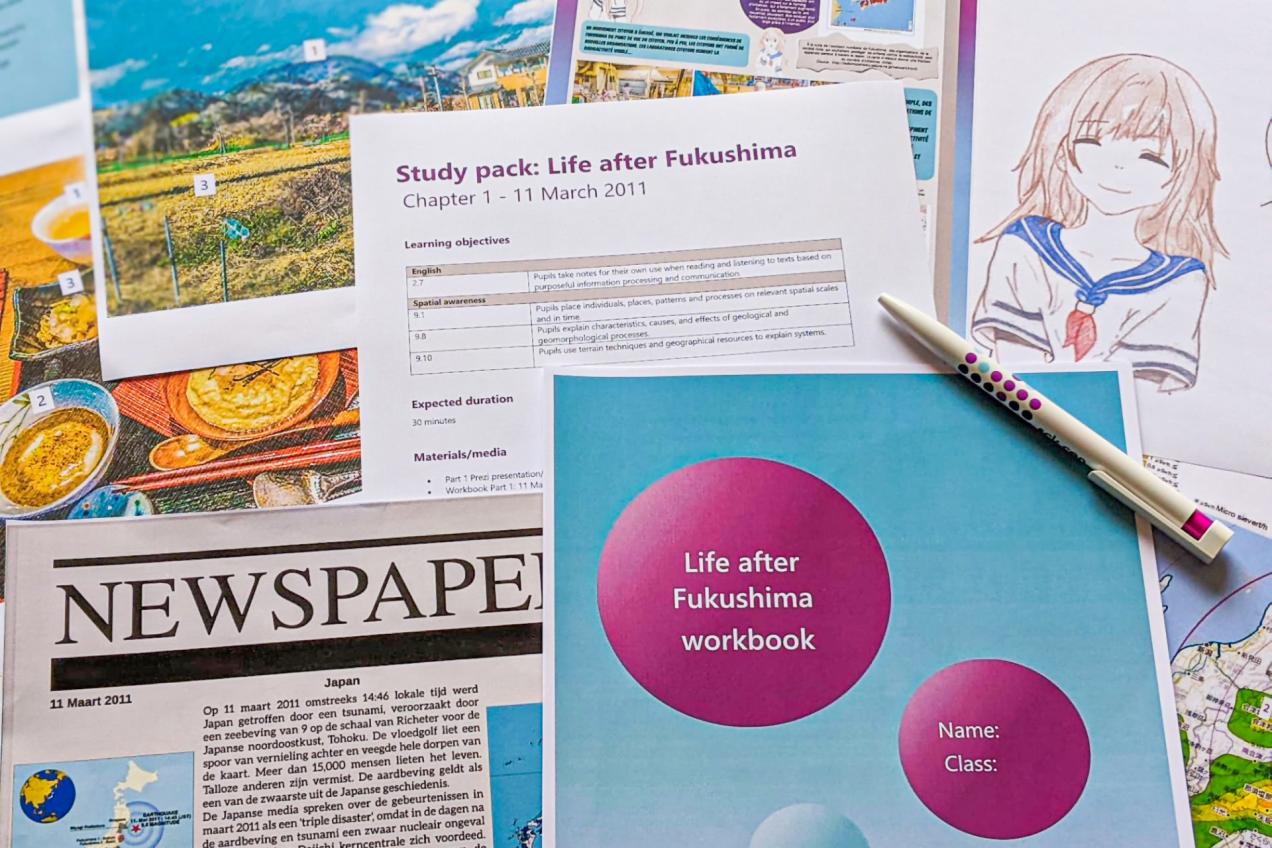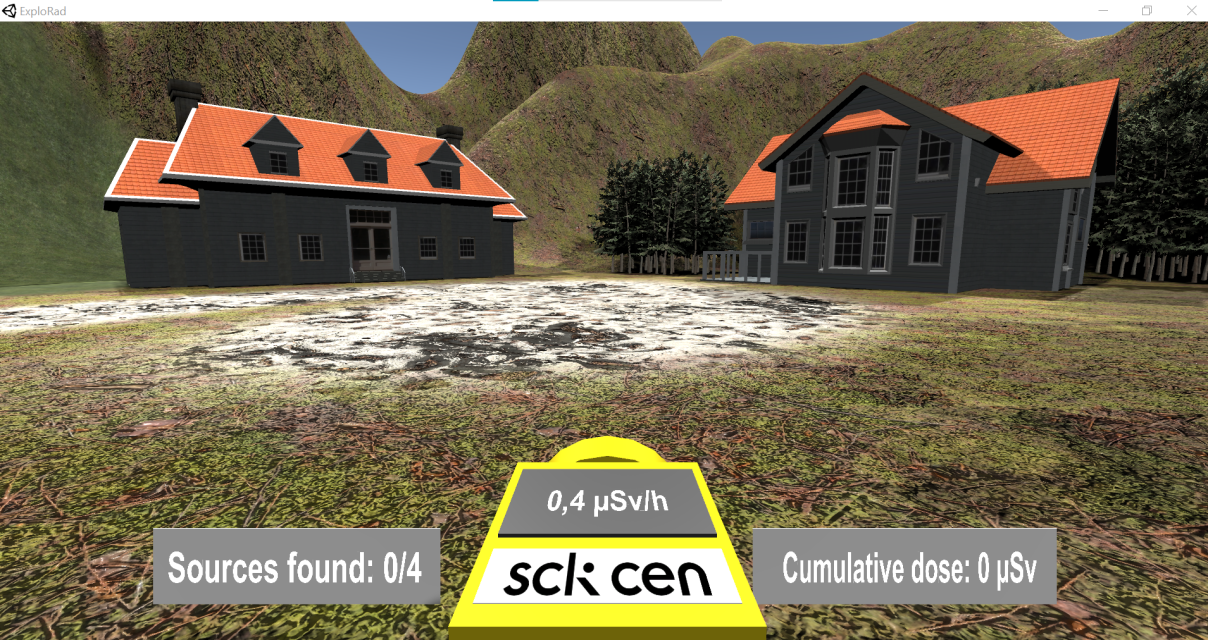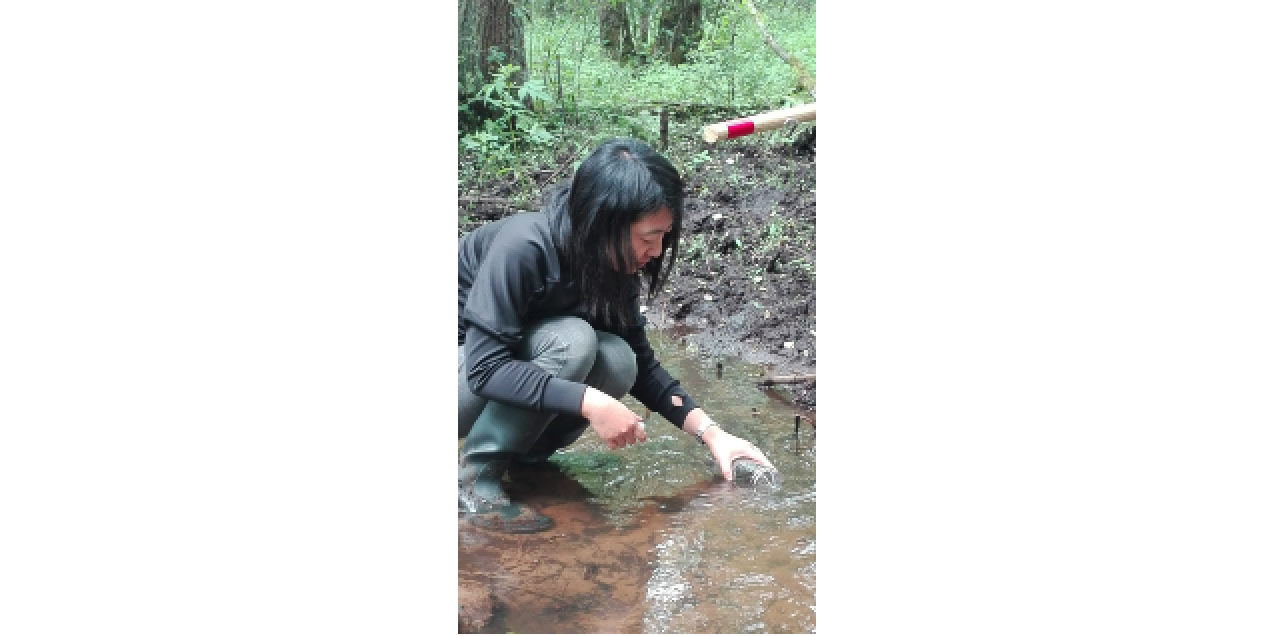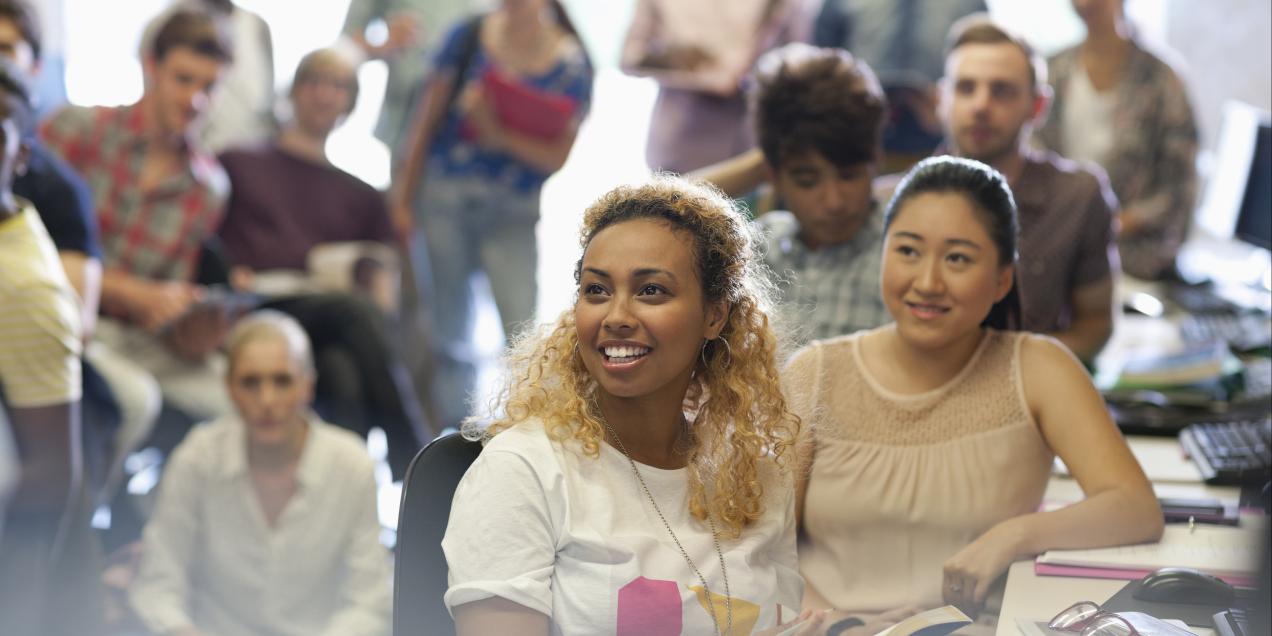SCK CEN launches ‘Life after Fukushima’ lesson materials with computer game
Belgian youngsters know too little about radioactivity and nuclear risks. This is what Joke Kenens, a PhD student at KU Leuven and SCK CEN, noticed when she stood in front of the classroom in 2018. Today, she is launching the ‘Life after Fukushima’ lesson materials tailored to young people in the 12th and 13th years. The big deal? The accompanying computer game in which you can measure radioactivity yourself.

Life after a nuclear disaster
A shortage of teaching resources that explain radioactivity in an accessible way laid the foundation for the ‘Life after Fukushima’ lesson materials. The special thing about these materials is that they touch upon history and science lessons, as well as English and geography. At the same time, young people are introduced to ‘citizen science’, the popular phenomenon whereby citizens participate in scientific research.
Cross-curricular and all pupils
Joke's own classroom experiences reveal why the lesson materials are badly needed. Joke explains: “I noticed that secondary students do learn about radioactivity, but only during Physics and Chemistry lessons. The impact of a nuclear accident on a society was not discussed. I therefore felt a need to approach radioactivity from different disciplines. At the same time, I had a wealth of images and testimonies, thanks in part to my own trips to civilian labs in Japan as part of my doctorate. Thanks to the co-operation of SCK CEN colleagues from my research group SPS and from the SCK CEN Academy, we were able to make full use of this information and turn it into a wonderful whole.”
Michèle Coeck, Head of the SCK CEN Academy, confirms: “These lesson materials are cross-curricular, and all pupils from the 3rd grade (16 to 18 years old) of secondary education can use them. Joke puts STEM subjects in the spotlight in a casual way, lets young people learn about radioactivity in a multi-disciplinary manner and supports teachers with a ready-made package that fits in with the final attainment levels. We enjoyed helping to make this happen and are proud of the result achieved.”
True-to-life stories in 4 chapters
The lesson materials consist of 4 chapters that teachers can use as a whole or as separate parts. In each chapter, 17-year-old Masako takes the floor. Although she is a fictional character, her stories and photographs are based on real-life experiences. Catrinel Turcanu, Senior Researcher at SCK CEN, adds: “In Masako's story, you can recognise a mix of different research domains, including social sciences. Moreover, it's a timeless curriculum that can certainly be expanded upon in the future.”
In the 1st chapter, 11 March 2011, students learn about the cause and effect of the Fukushima disaster. Chapter 2 My life after Fukushima, covers the basics of radioactivity and shows how Japanese people got back to their lives. Chapter 3 Measuring radiation in a citizen's lab explains how to monitor radiation and zooms in on the principles of citizen science. The 4th and final chapter draws a comparison between the situation in Belgium and Fukushima. A Prezi presentation, printed workbook or the SCK CEN website form the basis of the lesson materials.

Interactive computer game: ‘Measure radioactivity yourself’
The icing on the cake of the lesson materials is to be found in Chapter 3: ‘Measuring radiation in a civilian laboratory’. Here, students are given the opportunity to measure radioactivity themselves – albeit through a computer game. With a Geiger-Müller counter, they explore the fictional village of Morishima (island of forests), mark radioactive sources and reassure local residents. The game was conceived and developed by Riccardo Rossa, a researcher at SCK CEN and a teacher at the SCK CEN Academy.
Dit project werd door SCK CEN uitgevoerd in het kader van het PISA-programma voor de integratie van sociale aspecten in nucleair onderzoek. Het lespakket kwam tot stand in samenwerking met de Cel Crisisbeheer en Beslissingsondersteuning, wetenschappers van SCK CEN en SCK CEN Academy.
Consult the SCK CEN website for the full lesson materials.
Related articles
 25 March '24
25 March '24 22 March '24
22 March '24- 19 December '23